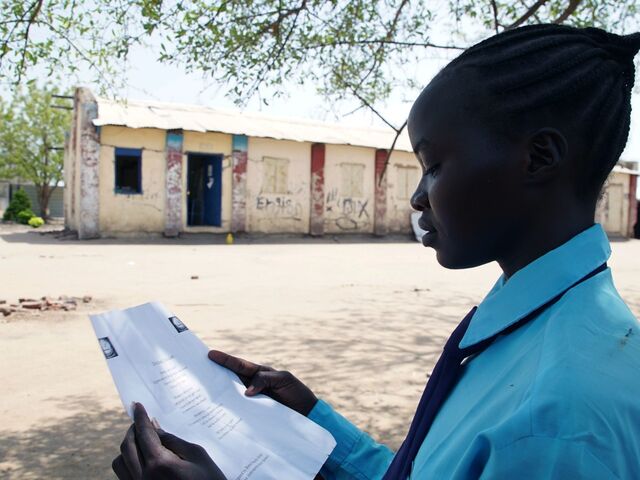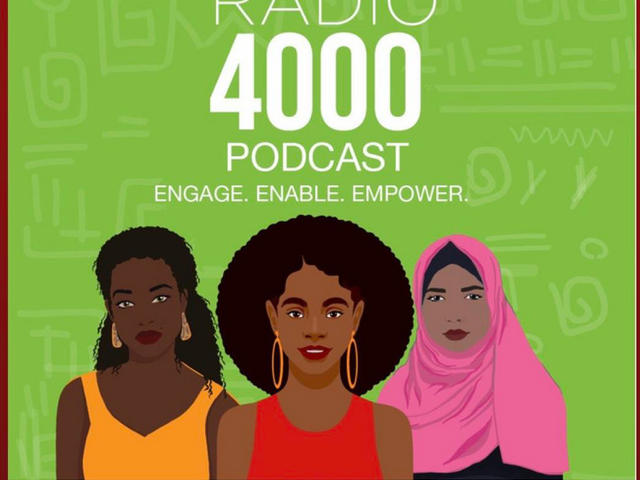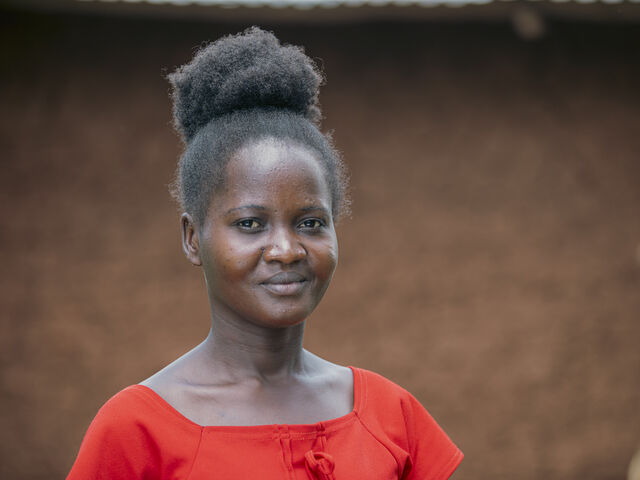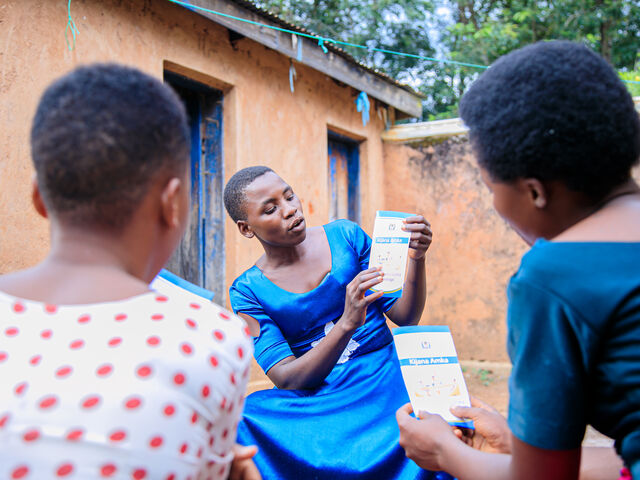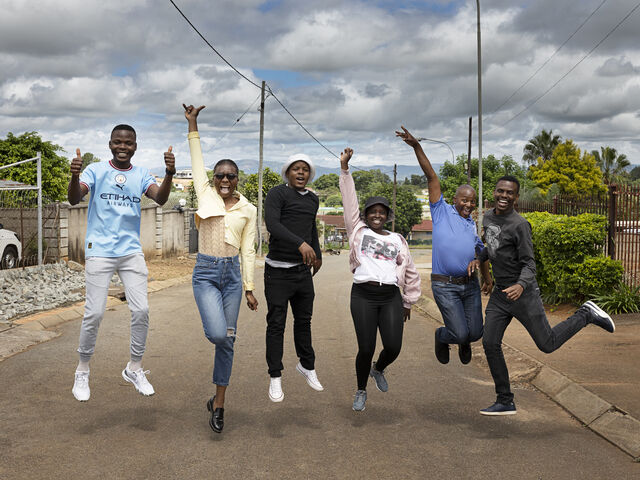From Adolescent Mum to Farmer, Mentor and Businesswoman
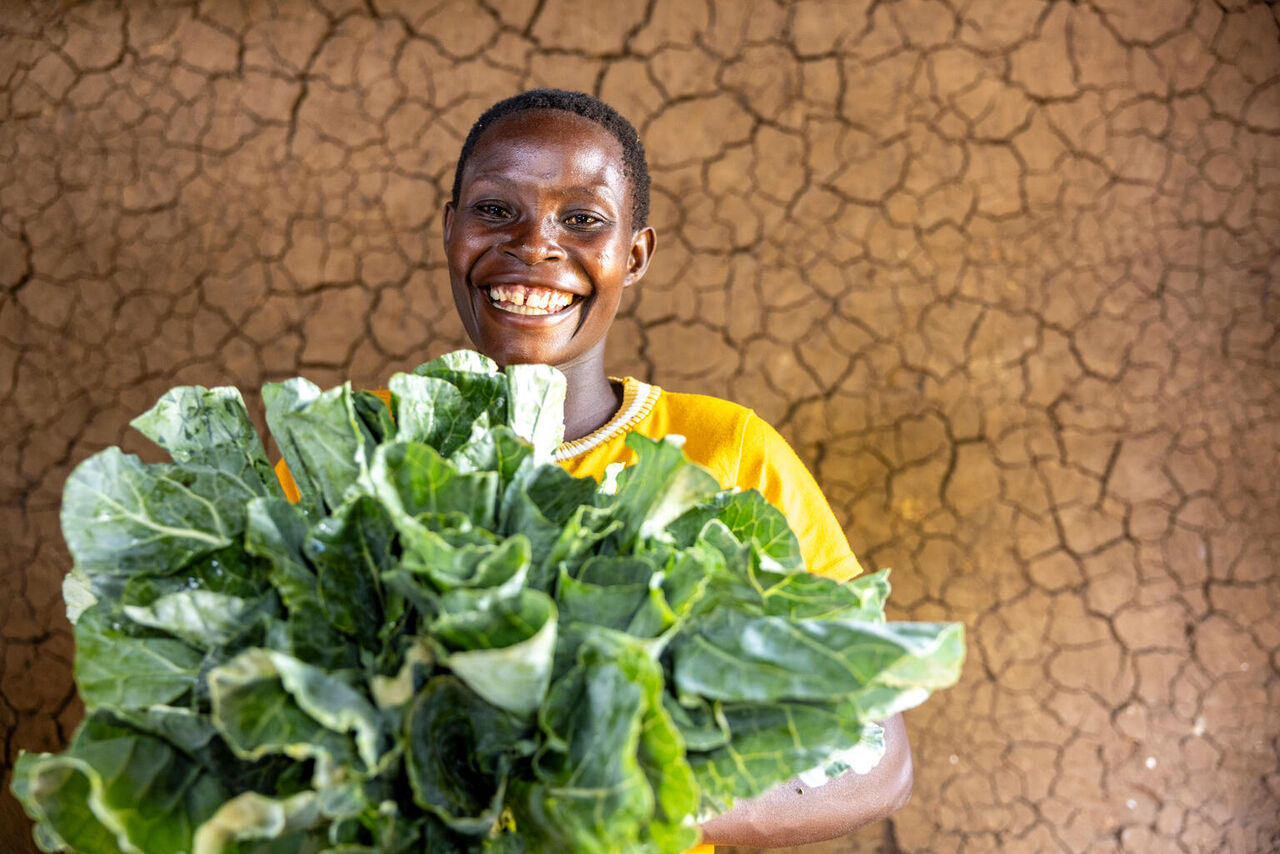
Jackline Nabwire is a mother to four children in Namayingo District, Uganda. At just 24 years old, she used to wake up every morning with more questions than answers. Married at the young age of 17, she spent her adolescence juggling the burdens of a growing family, often struggling to put food on the table. Her maize and cassava harvests were barely enough to eat never mind sell.
But today, a quiet revolution is taking root – right in her front yard. “I used to think life would never change,” Jackline recalls. “Then one day, I went for my antenatal visit at Bumooli Health Centre and found people talking about kitchen gardens. Everything started to change.”
At the health centre, Jackline and other expectant mothers took part in a training course on kitchen gardening, run by agricultural experts and health workers. “We were shown how to prepare soil beds, transplant seedlings, apply manure and even prevent plant diseases,” she explains. “The training was hands-on and easy to follow.” For Jackline, it was not just about growing vegetables. It was about reclaiming control over her life.
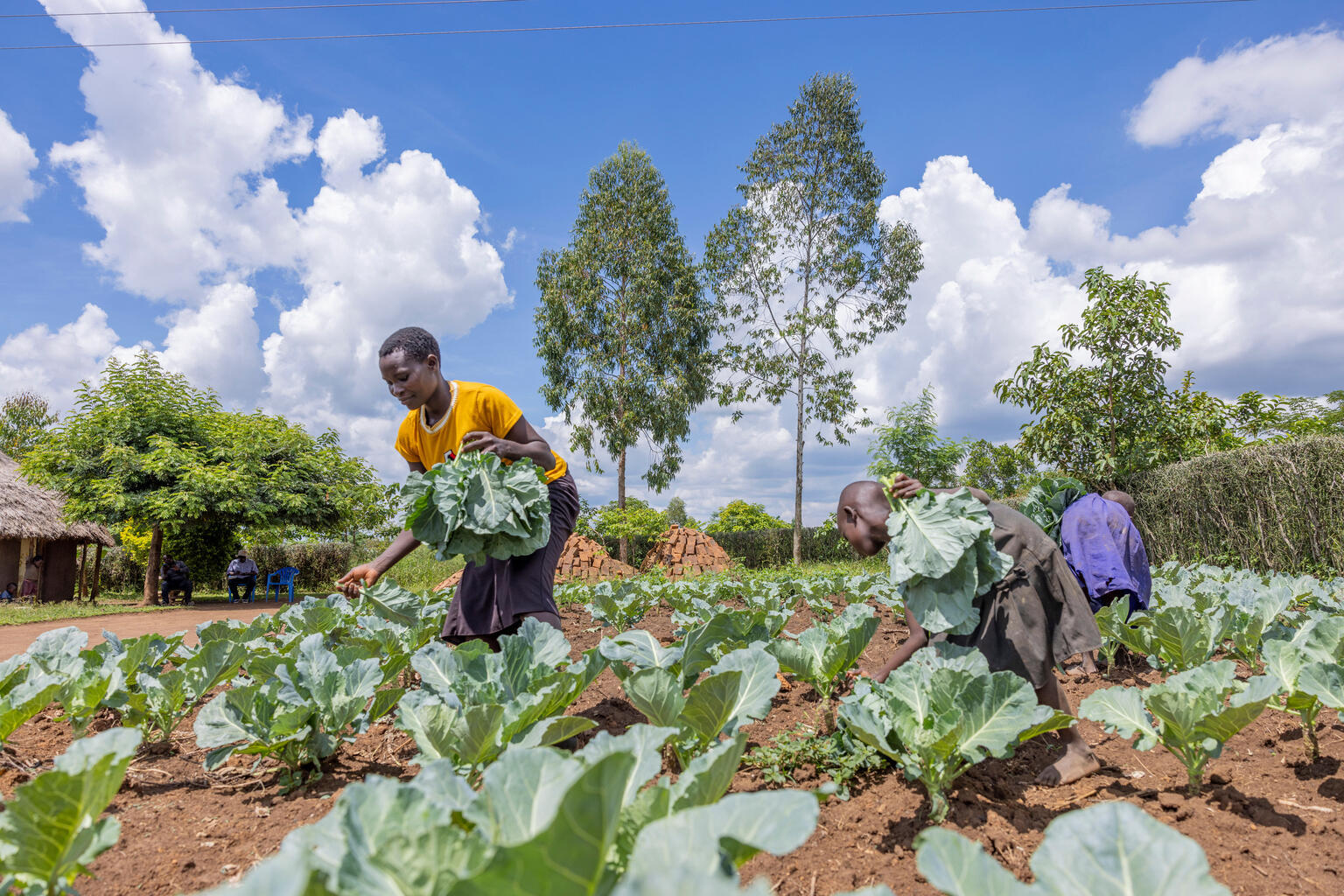
In Uganda, and all across Eastern and Southern Africa, adolescent girls in particular experience disproportionate risks, including early and unintended pregnancy, HIV, and gender-based violence. Lack of access to credible information coupled with health services that do not respond to the specific needs of adolescents contribute to this elevated risk. Yet evidence shows that investments in adolescent health and wellbeing are proven to bring benefits today, for decades to come, and for the next generation.
In Namayingo District, where the teenage pregnancy rate is a staggering 27 per cent, and malnutrition among mothers and children is widespread, a joint UN Regional Programme 2gether 4 SRHR is taking a new approach. In partnership with Sweden, UNICEF and the Uganda Ministry of Health have combined health and nutrition services, knowing that young mums have the greatest needs on both fronts, and if not addressed, their children will face the same issues.
Young people need vital information to make informed choices for healthier lives. Adolescent girls need to have clear information about pregnancies and exercise their right to decide freely when to have children. Jackline’s local health clinic offers stigma free, youth-friendly services and community and peer models of information sharing and support.
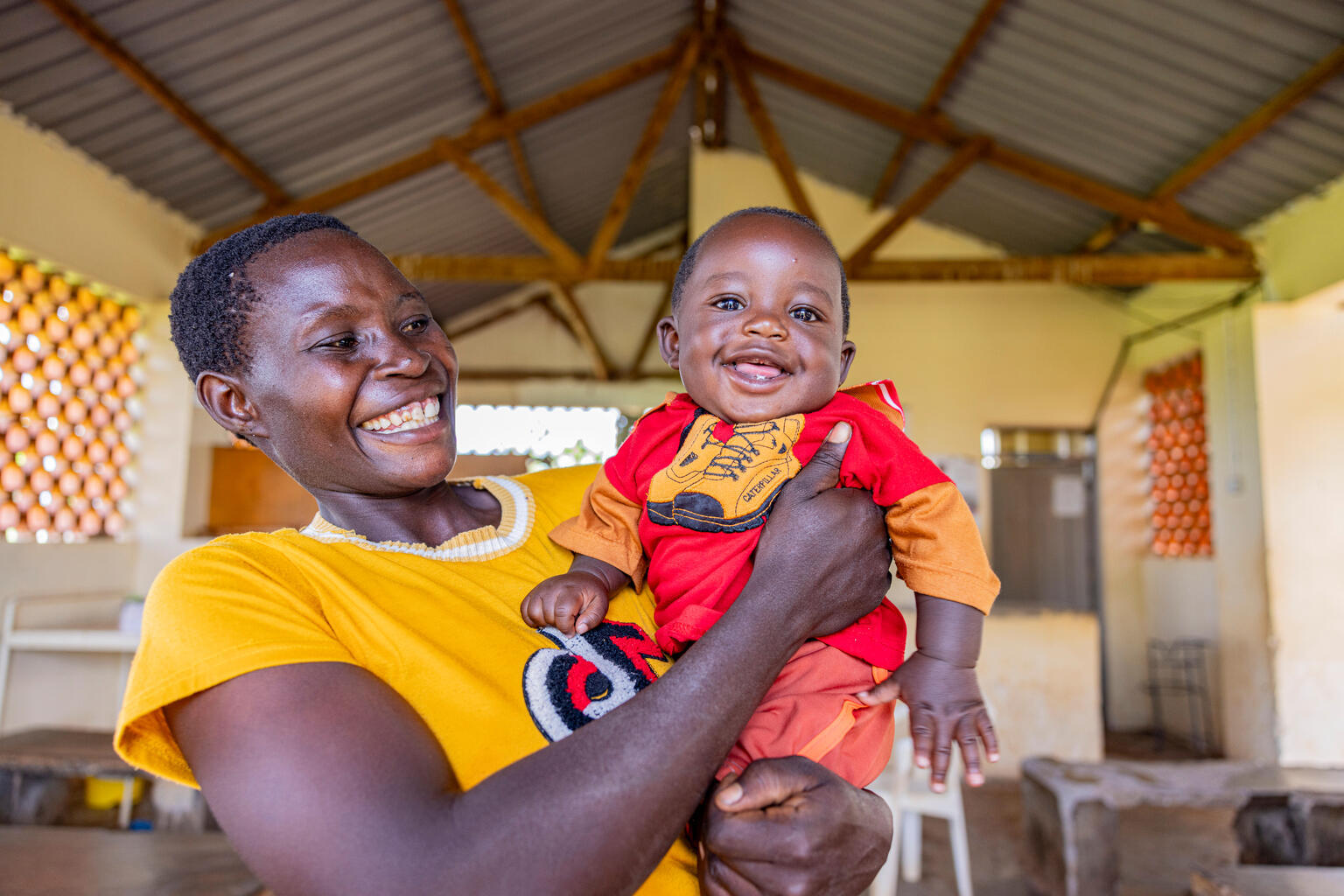
Tens of thousands of young mothers across the region have been engaged in mentoring programmes, through 2gether 4 SRHR, because adolescents and young people respond best to advice from their peers. Mentoring programmes are leading to positive results, including in HIV viral suppression, contraceptive uptake, improved mental health conditions and a reduction in intimate partner violence. The children of supported young mothers are also benefiting with improvements in immunisation uptake, HIV, early child development and nutrition.
“I now cook healthy food for my family and sell the extra to meet other basic needs. I don’t have to go to the market every time, and my children are eating better. Even my youngest child, Okello, who is still breastfeeding, looks more healthier because I’m eating nutritious meals.”
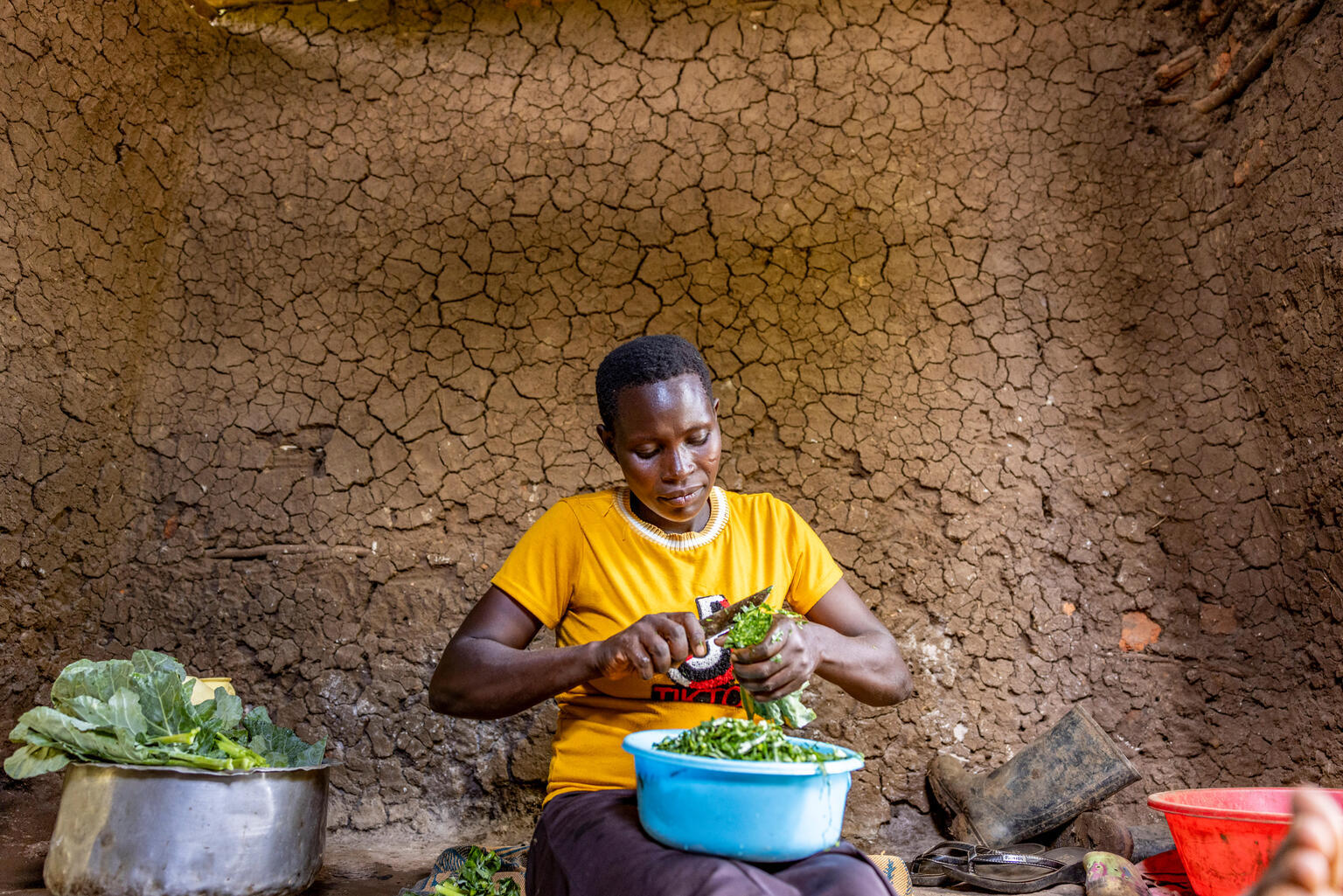
Jackline’s success mirrors a broader transformation. The programme has improved antenatal attendance and reduced malnutrition. Sarah Mirembe, a midwife, explains that teenage mothers who were once shy or reluctant are now active participants. “Some of them had been abandoned or mistreated by their families. Through counselling and nutrition education, we’ve helped rebuild family ties and self-esteem”.
The kitchen gardens are also proving to be powerful tools for broader health education. Sadat Mukasa, Assistant Nursing Officer at Jackline’s local clinic, Bumooli Health Centre, notes that the gardens have become platforms for discussing other health related topics like HIV, contraception and child spacing and economic empowerment. “We tell mothers that when they plan their families well, they can manage farming better and earn income to support their children.”
Jackline confirms this. Her garden is now a small but significant enterprise. “People come to my home to buy vegetables. I have even started teaching a few other mothers what I learned,” she says with pride.
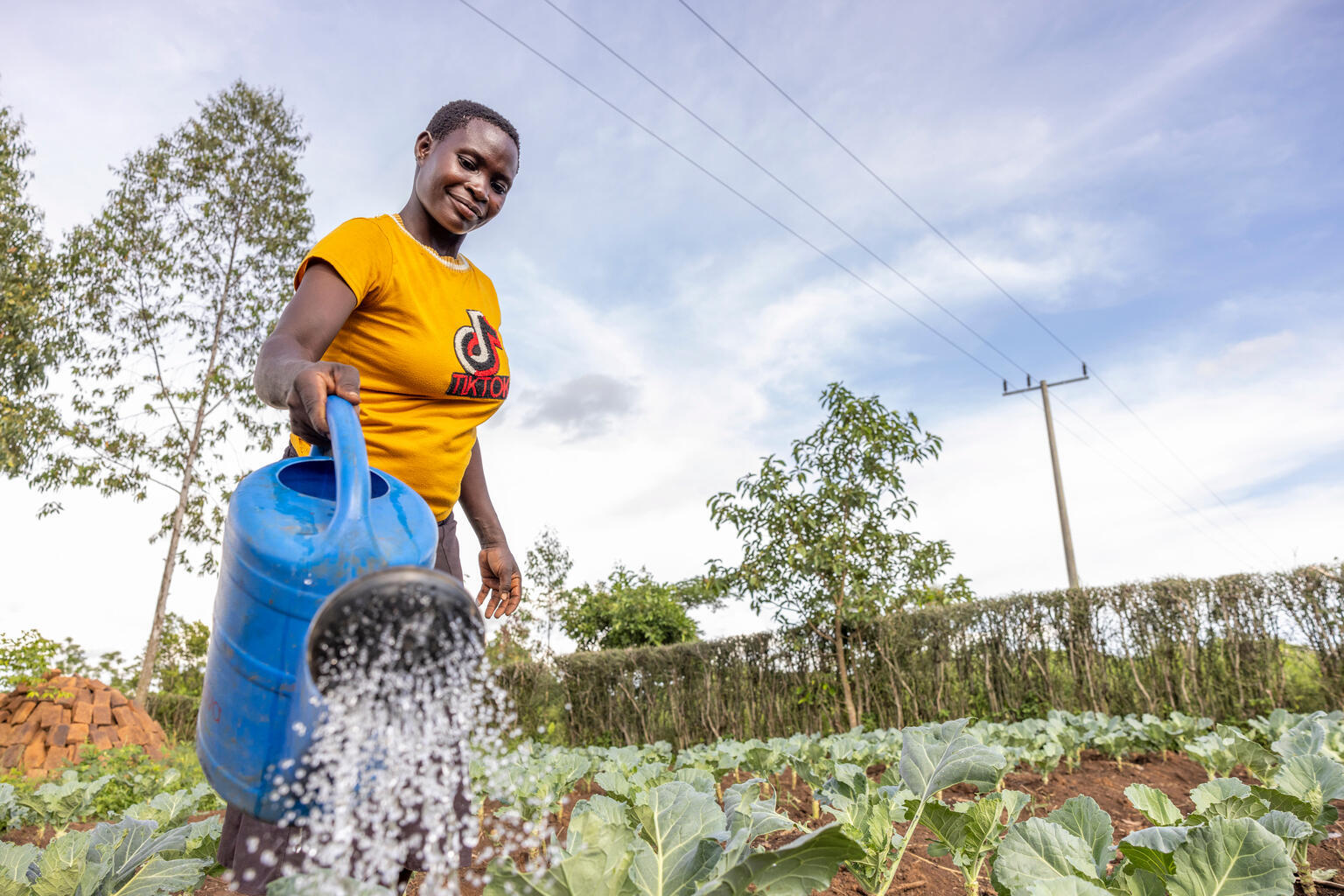
And the ripple effects go beyond nutrition. “When my neighbours saw the benefits, they wanted to join. Some of their husbands are now helping them grow vegetables,” says Jackline. “I dream of expanding this into a bigger project – maybe even poultry next.”
“Before, I felt invisible,” Jackline reflects. “Now I am someone who provides for my family, teaches others, and have plans for the future.”
Her journey from a struggling young mother to a confident family provider and community role model, embodies the spirit of the 2gether 4 SRHR programme, which is not only restoring health, but also hope and resilience. Jackline’s story shows the power of a few vegetable beds, nurtured with community support and accurate information, to grow far more than just food.
Africa has the youngest and fastest-growing population on earth. The potential of this population could be transformational. Investments in adolescent health and wellbeing are proven to bring benefits today, for decades to come, and for the next generation.
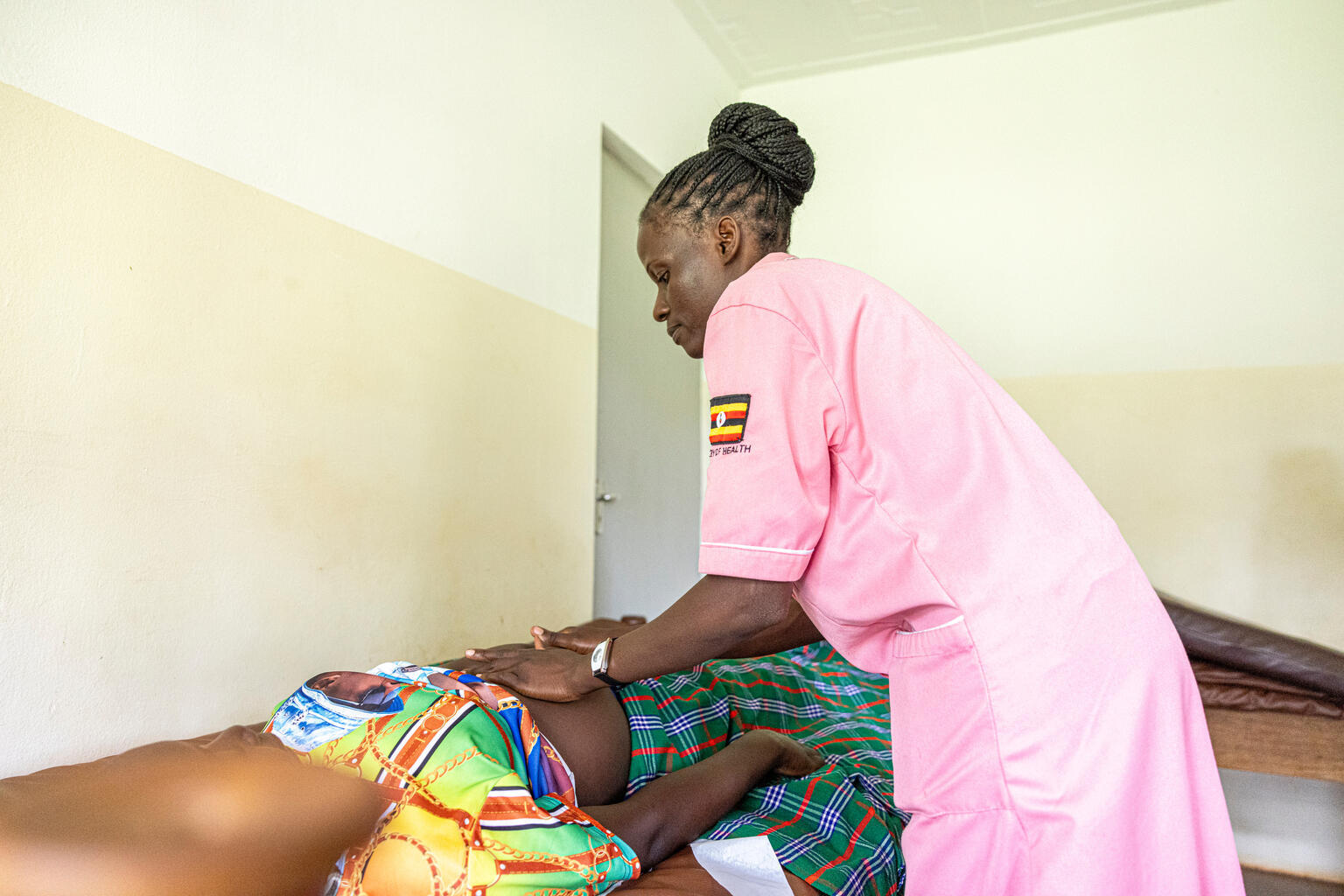
2gether 4 SRHR is a joint UN Regional Programme, in partnership with Sweden, which brings together the combined efforts of UNAIDS, UNFPA, UNICEF and WHO to improve the sexual and reproductive health and rights (SRHR) of all people in Eastern and Southern Africa. For a one stop shop of information and resources in Africa, visit theSRHR Knowledge Hub.
